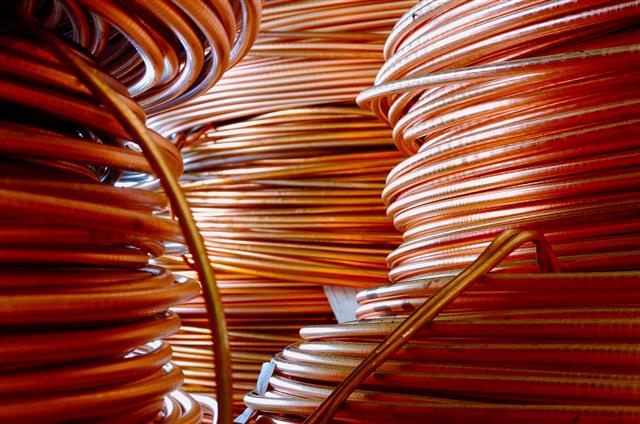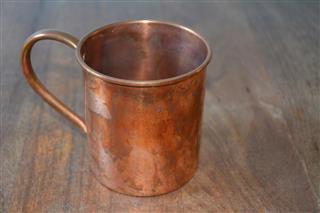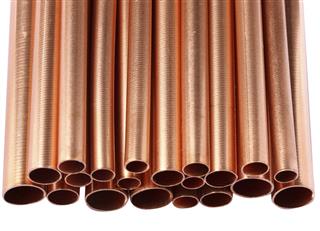
Copper is a fairly common, red-colored metal. The article below highlights some of the important chemical properties of copper.
Copper is a metal used by people who lived in prehistoric times. It is a good conductor of heat and electricity. Jordan, Egypt, and Israel have copper smelting locations that date back to 4500 B.C. The people who lived in that historical period combined copper with iron or tin to produce an alloy called bronze. Another alloy of copper is brass. Brass and bronze are stronger than copper; hence, they are used to make weapons, such as spear tips, hammers, axes, and so on.
The Romans smelted copper from the ores found on the island of Cyprus. The chemical name of the metal copper is Cuprum, and it has been named after the country Cyprus.
Important Chemical Properties of Copper
The table below lists the chemical properties of one of the most important element, copper.
| Chemical Property | Value |
| Atomic number | 29 |
| Atomic mass | 63.546 g.mol-1 |
| Electronegativity according to Pauling | 1.9 |
| Density | 8.9 g.cm-3at 20°C |
| Melting point | 1083 °C |
| Boiling point | 2595 °C |
| Vanderwaals radius | 0.128 nm |
| Ionic radius | 0.096 nm (+1); 0.069 nm (+3) |
| Isotopes | 6 |
| Electronic shell | [Ar] 3d10 4s1 |
| Energy of first ionization | 743.5 kJ.mol-1 |
| Energy of second ionization | 1946 kJ.mol-1 |
| Standard potential | +0.522 V (Cu+/Cu); +0.345 V (Cu2+/Cu) |
Miscellaneous
- Copper is a malleable and ductile metal. This element is softer than iron, but harder than zinc.
- In the periodic table, copper is found in group Ib that includes transition metal elements such as silver and gold.
- When polished, copper glows and looks bright. Copper absorbs moisture, and a green layer is formed on top of it. It is called “patina”; this coating protects the metal from being eroding.
Applications
- Construction of industrial machinery.
- Manufacturing of electrical equipment.
- Manufacturing of widely-used alloys, like brass, cupronickel, bronze, gunmetal, etc.
It is a fact that the human body absorbs copper in small quantities, because it is one of the essential minerals required for the proper functioning of the vital organs. The daily requirement of copper is about one to two milligrams.





